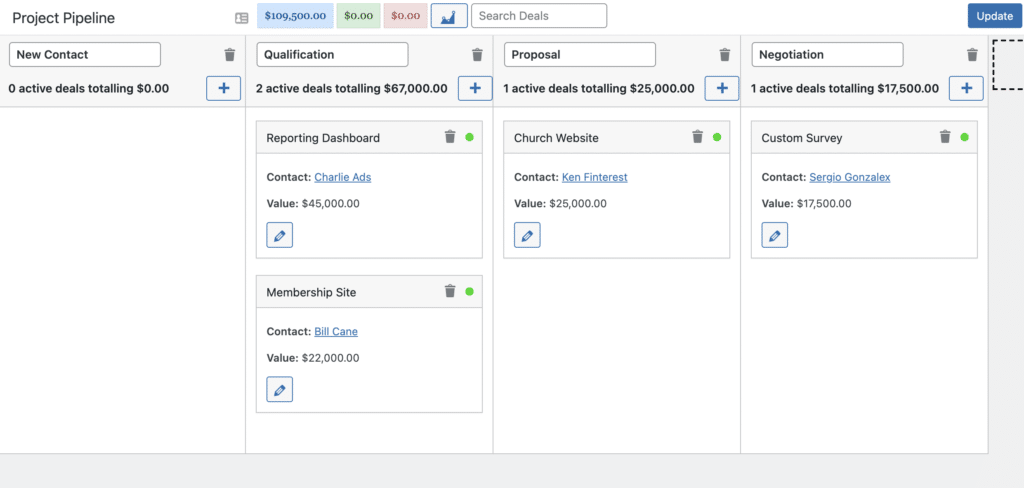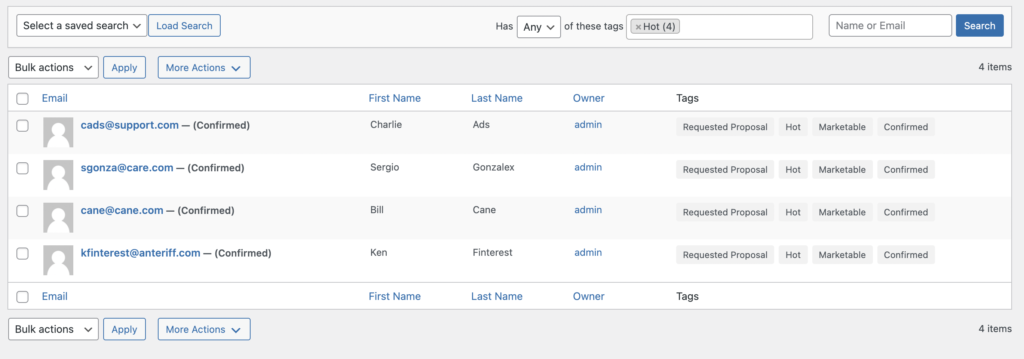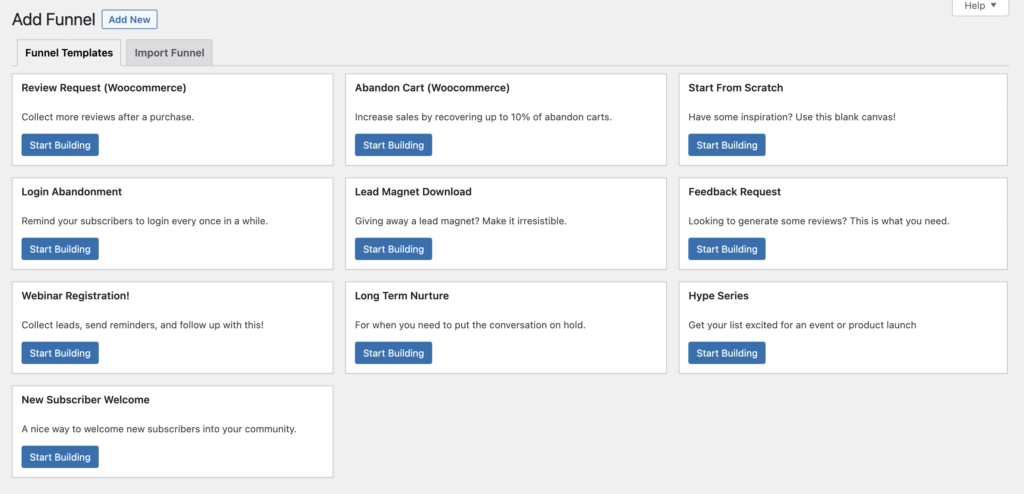It's a question that bounces around in your head
If you're a freelancer, small digital agency, or run a small team selling a plugin or theme, you've likely wondered what's the best CRM for you – or if you need one at all. Maybe you've been fine with your email system and a help desk or project management system, but it nags you at the back of your brain.
Small teams or an individual that doesn't have a ton of contacts to manage may think you don't need a CRM at all, much less wonder what's the best CRM for you and your team.
And right when you think, I don't need a CRM – you notice a lead that fell thru the cracks. A deal that you never followed up with. A phone call or email that you never replied to.
And that's when it comes back again and you ask the question….
What's the best CRM for small teams?
Why use a CRM at all?
I find that teams like yours – whatever their size – have several reasons to consider a CRM:
You need a systematic approach to working with leads or prospects.
In the past I wrote about proposal software. Well, who do you send proposals to? You guessed it: leads.
A CRM can track the steps and process that gets you from initial form intake all the way to proposal and then to closing.

CRMs can help you determine where to focus.
Let's be honest, not all leads are equal. To help you focus on the leads with the most potential, CRMs give you the tools to categorize, tag and score your prospects.
Adding a tag (like “requested a proposal”) can automatically add points to your contact (based on their behavior). And those points can push them into a point level that automatically adds another tag, like “hot.”
With lead scoring features, you can rank your prospects by their behavior and interest.

A CRM can help you automate activity.
The other day I wrote you about marketing automation. I showed you how you could automate the collection of reviews from a WooCommerce transaction. That's only one of several different automations you might want.
A CRM gives you the opportunity to create a series of automation steps so that you don't have to do it yourself. Running a podcast? What are the three emails you have to send before recording the episode? Reminders? Equipment checks? And what do you send afterwards? Thank you emails? You can automate all of that.
What do you do with customers on projects you've just finished? Do you ask for testimonials? If you pick a good CRM, it can handle this for you.
CRMs can help you automate your communication so that it's more than just a database of contacts – it's an automation engine.

Let me be clear – I'm not trying to sell you on anything. Other than being the best version of yourself. And that means not letting things fall thru the cracks. When you manage your business well, you'll be in a good place and your customers will love you.
And that's why I think it's worth figuring out which is the best CRM for teams like yours.
Your CRM options
There are a lot of options for you, and several posts that people have already written about lists of CRMs and their features. Here are two of them:
I put those there in case you want more data and research than you'll get from my opinions below.
Names You've Heard Before
ConvertKit: Free up to 1000 subscribers
I use and recommend ConvertKit – even though it doesn't look like a typical CRM. It's email marketing software, but gives away a free plan for up to 1000 contacts, and you can do more than just tag those customers, you can add custom fields (like a CRM) and then email them.
I used to use AgileCRM, but not the free level. As you add more marketing automation, it moves up to $9/user/month. But the free version supports 50,000 contacts, supports lead scoring, and all sorts of deal milestones to help you manage your process.
Hubspot works because you know the name. And it works because they know what they're doing. They built a free CRM solution to pull you into their ecosystem and then charge you for the other software they've built. But there's no getting around the fact that their CRM works and is free.
You've heard the name but maybe not for CRMs. But it's a database and if you want to capture and adjust prospect status in an online system, Airtable can help you do it. It's also priced right – at free, but it will turn you into a developer. Not a coder. But someone who has to worry about the application as much as the data. Not my deal, but I know people who do it.
The Name You Might Not Know
Those screenshots above were all from Groundhogg.io – a solution that can help you from marketing automation to a CRM. And for small teams, it's pretty perfect – especially if you're already in the WordPress ecosystem. It brings everything into your WordPress dashboard – no need to go anywhere else.
And it integrates with everything and every major plugin in the world. So if you're using Ninja Forms, LifterLMS, BuddyBoss, LearnDash, WooCommerce or Easy Digital Downloads, you'll be thrilled to see the integrations they have.
Want to take it to another level?
You might be saying, ok Chris, I'm going to check out CRMs and especially Groundhogg. But is that it? Don't you have anything else to help me take things to the next level? Well, I'm glad you asked. I do have one last little tid bit up my sleeve…
Have you heard of AutomatorWP?
You've likely heard of Zapier. They're like the automation glue for the internet. But what if there was a piece of software that did that for WordPress? What if it supported all the plugins you use on a regular basis and you could use it to connect the dots between plugins.
- Like when a customer buys a certain product, you add a tag to their record in your CRM.
- Like when a customer writes a testimonial, you give them a custom coupon.
- Like when a customer pays their 3rd invoice, you send them a t-shirt from your Woo store.
The options are endless.
And all of it possible when you use Groundhogg and AutomatorWP.
